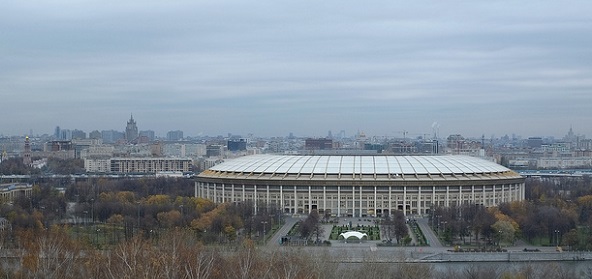In 2010 Russia was awarded the right to host the next FIFA World Cup. After the Sochi 2014 Winter Olympics, the 2018 World Cup will become the second major international sports event held in the country in its recent history.
The Russian government approved a total budget of 660 billion roubles (US$16 billion) for the event. 335 billion roubles (US$8 billion) will be allocated from the federal budget, 223 billion roubles (US$5.5 billion) from private investment and 102 billion roubles (US$2.5 billion) from the 11 constituent regions that host the World Cup matches.
Such a high amount of public spending requires increased transparency and accountability. Already, however, Transparency International Russia has concerns regarding the transparency of the organisations responsible for the World Cup and their activities.
Transparency in the preparations for the 2018 World Cup
According to the website of the Ministry of Justice, the Bid Committee and the Centre for Planning and Monitoring have not submitted any annual reports despite the legal requirement to do so before April 15 each year. The LOC submitted its 2013 annual financial reports to the ministry on time, but its 2012 reports appeared online with a remarkable delay of about one year – in July 2014.
Another key organisation involved in the preparations for the 2018 World Cup is the state-owned Sport-Engineering (Sport-In) appointed to manage the construction and subcontracting for the seven stadiums to be built. Sport-In also won the contracts to design five of the stadiums and actively engages subcontractors, some of which are designing more than one stadium. According to the official bidding information, in certain cases a contract was awarded to the only bidder.
Transparency International Russia has called on the Ministry of Sport to establish a comprehensive monitoring system for public spending on World Cup preparation activities. The system should make the details of public spending openly available and easy to access, so that any interested person or group can track how the funds are allocated and used.
No such comprehensive system was ever established for the Sochi Olympics. Then the Anti-Corruption Foundation (ACF) identified overpricing, offshore ownership stakeholders, the starting of construction without permission, environmental violations and, most frequently, personal ties between contractors and government officials. The result was delays in the completion of stadiums, as well as poor quality and/or inflated prices.
The current state of transparency and disclosure for the World Cup
At present only limited information is available on public spending for the 2018 World Cup preparations. The main official source on the preparation process at present is the information published by the LOC. As stated in its 2012 Annual Report on the FIFA website, the LOC does not run a separate official website, but uses the FIFA website to cover relevant news and its own activities, both in Russian and in English.
They do not provide documents or procedural or financial information on how the main actors are selected, nor do they provide information on how funds are allocated or spent, or even links to other sources containing this type of data. The sole annual report on the LOC’s activities that is available on the FIFA website covers 2012 only, and it is not available on the Russian-language version of the website.
The other official source of information is the website of the Accounts Chamber of the Russian Federation. The report highlights overpricing, delays in construction and payments, conflicts over land rights, and non-delivery by subcontractors, and addresses governance-related problems, such as timely issuance of governmental decrees and the development of project evaluation methodologies. A new audit was planned for December 2014, but there is no information on its progress yet.
Applying the lessons learnt from Sochi
If information about activities and public expenditures for the World Cup preparations is not disclosed on time, the same issues faced in Sochi could resurface. Creating a portal to disclose information about would be a crucial step to mitigate the various corruption risks.
FIFA itself should also make greater efforts to promote transparency. It should require all bidding and winning countries to publish their bid books, and should also require the host country’s local organising committee, or the relevant government actors, to maintain a comprehensive resource about the preparation process, focusing on the use of public money. It should also insist that the organising committee publish annual reports in the official language(s) of the host country.
For a more detailed description of the transparency requirement for the 2018 World Cup in Russia please read the full article here
Anna Koval is the co-author of this article. She is a project manager at Transparency International Russia.
This article was translated from the Russian by Anastasia Sudzilovskaya. The original Russia version can be read here.
















 Connect with us on Facebook
Connect with us on Facebook Follow us on Twitter
Follow us on Twitter